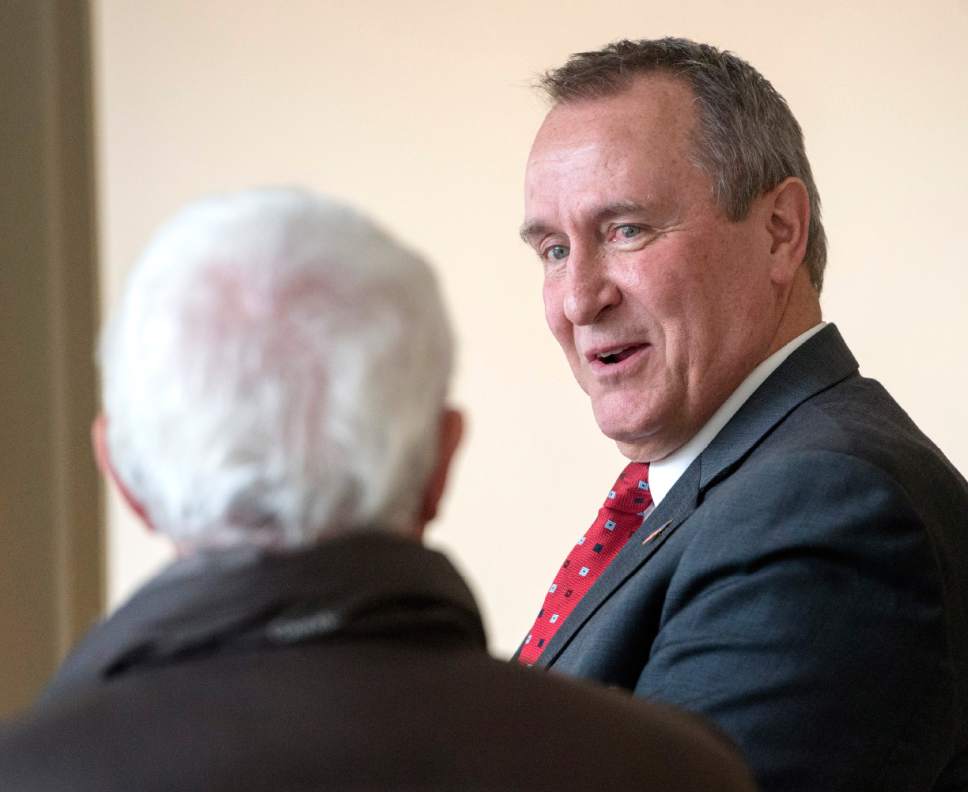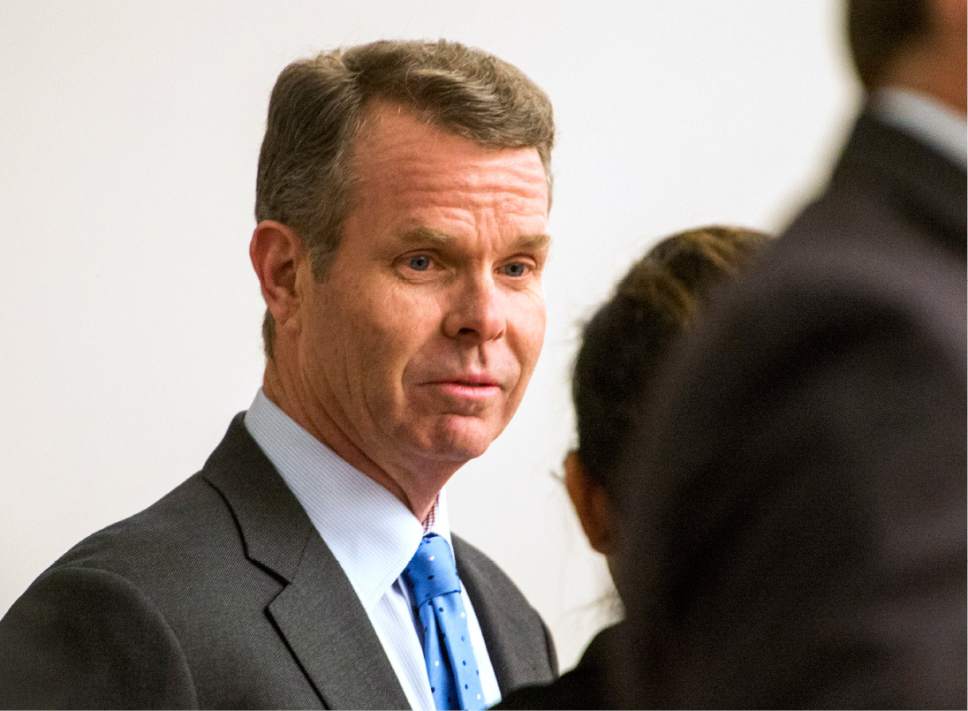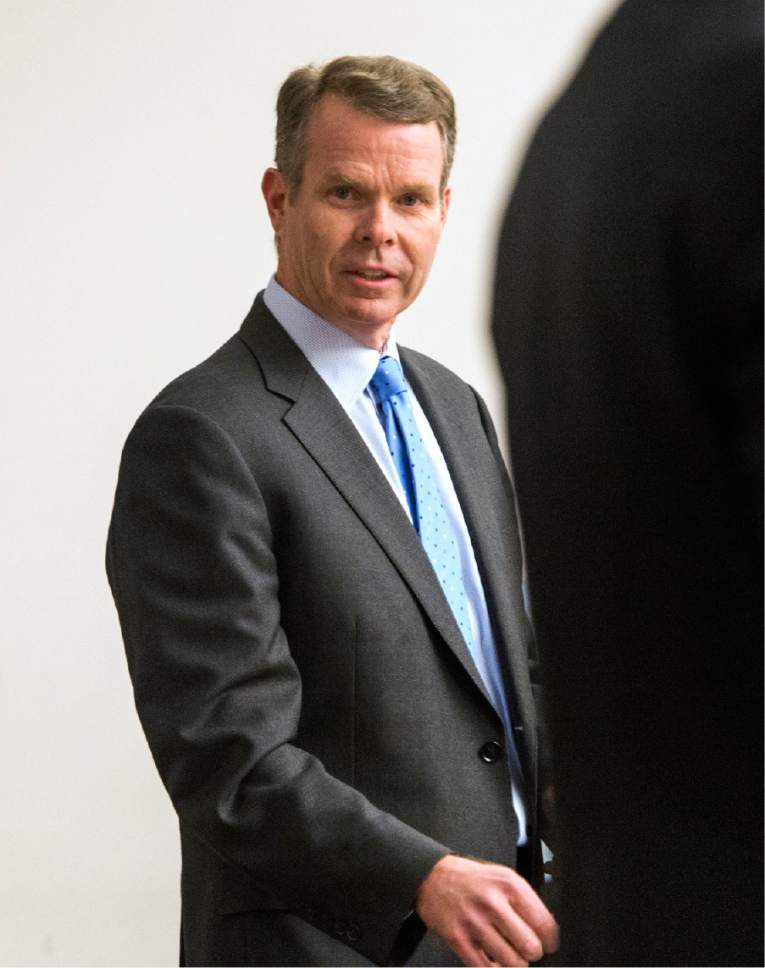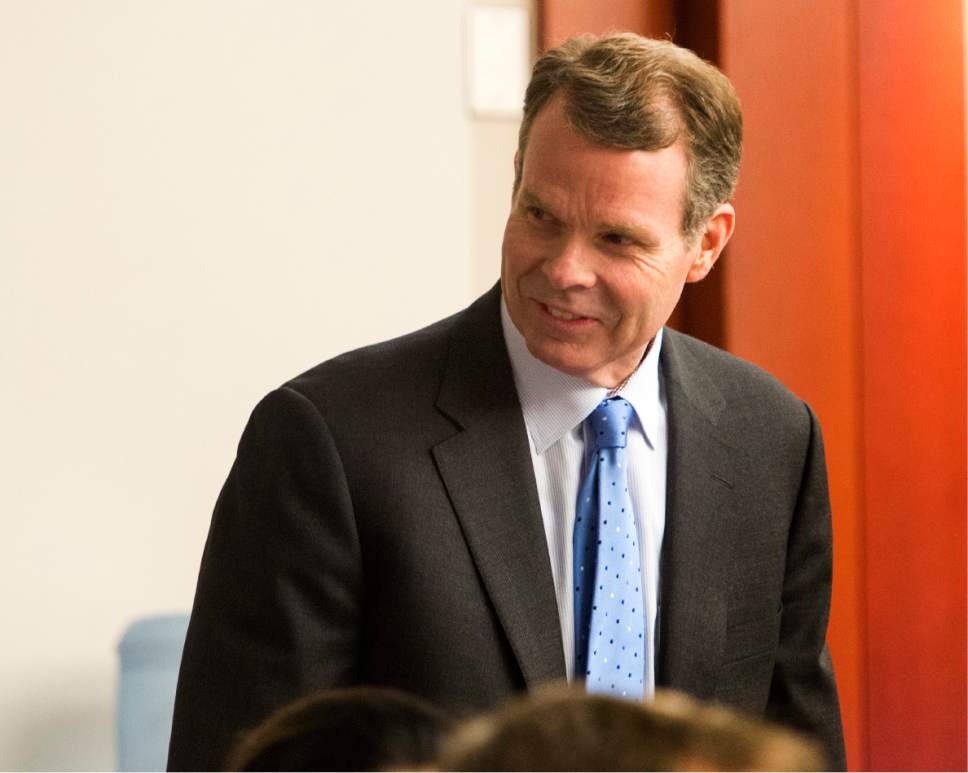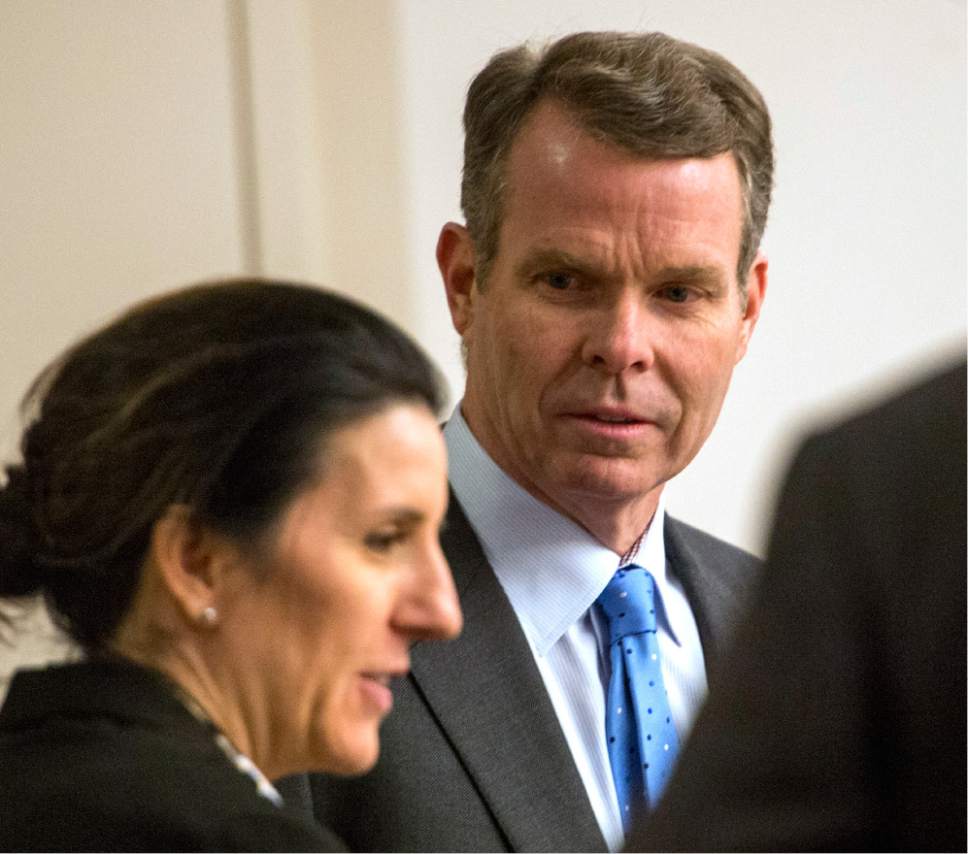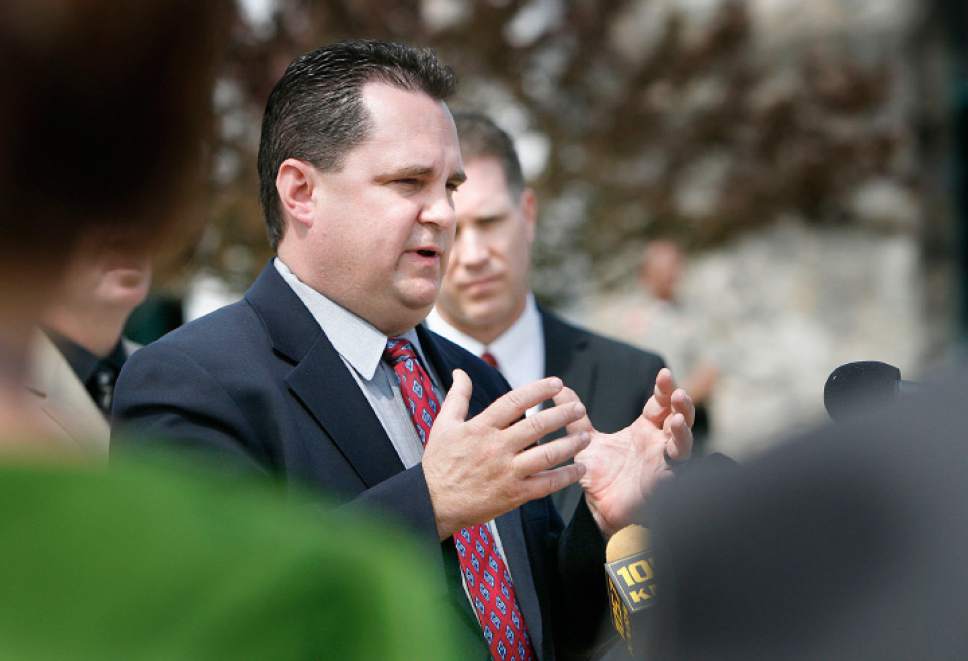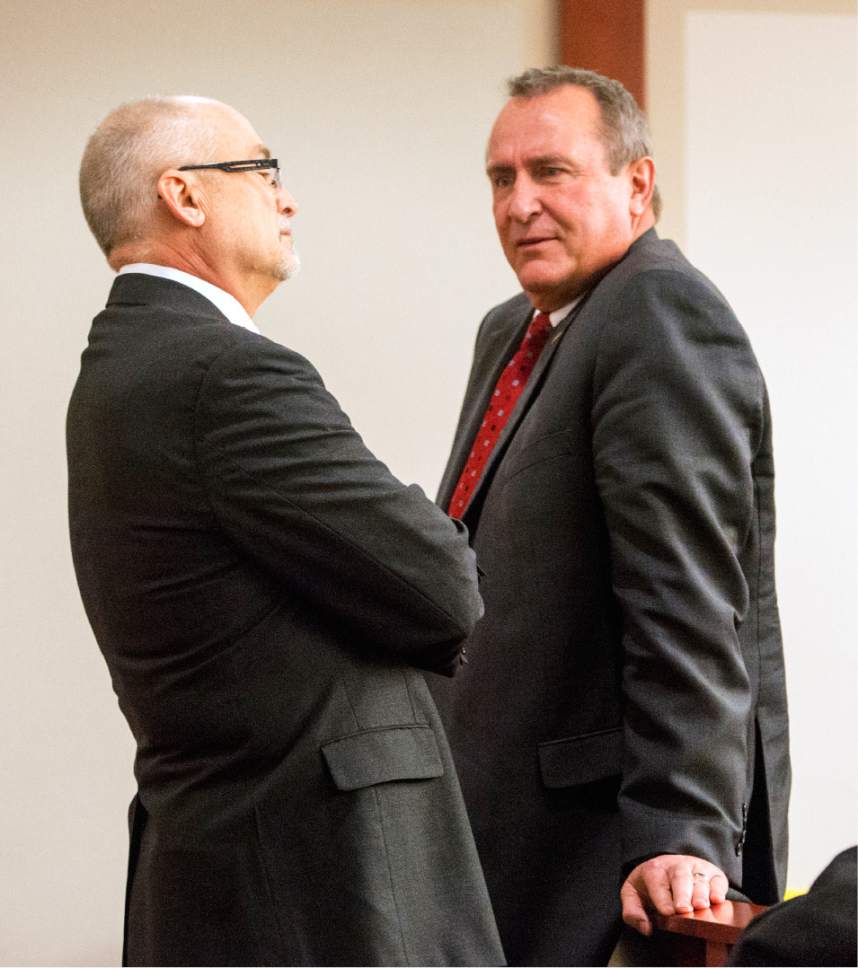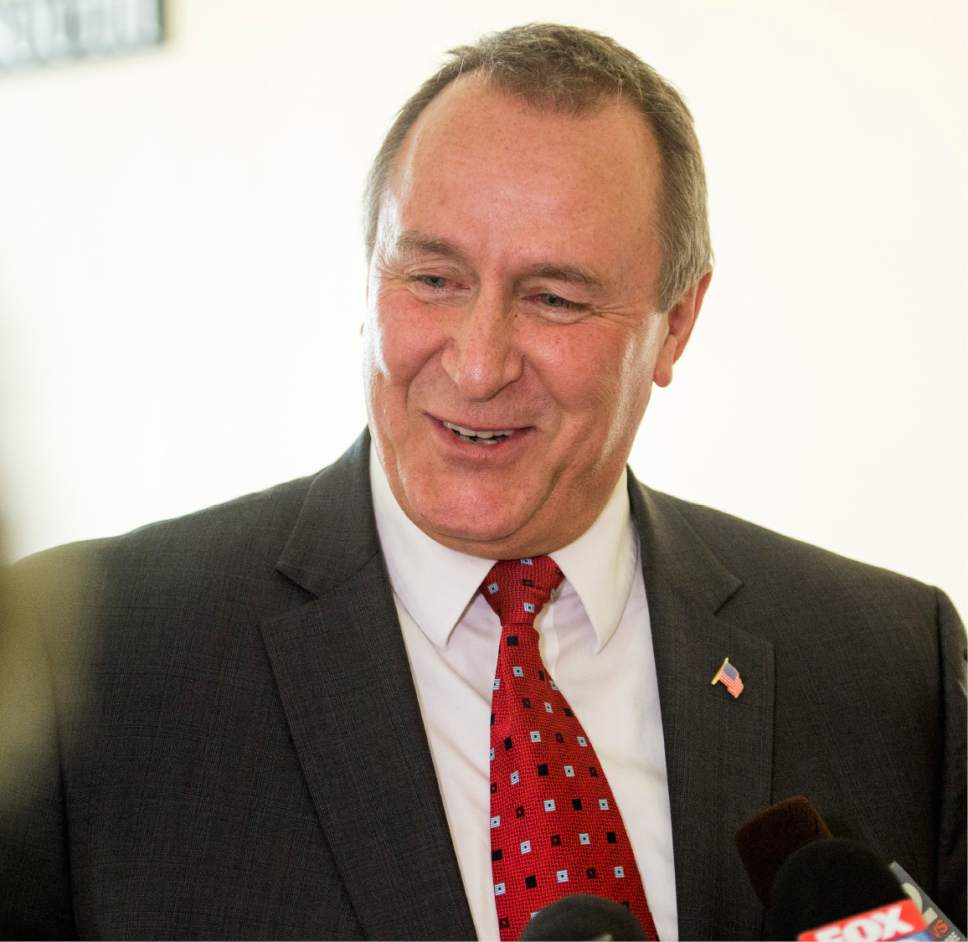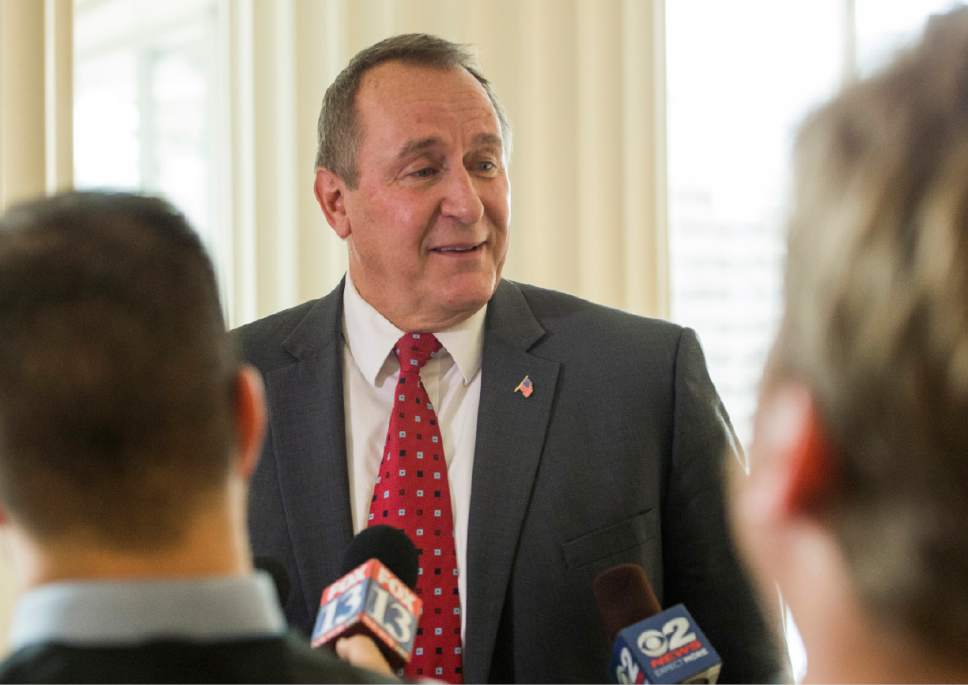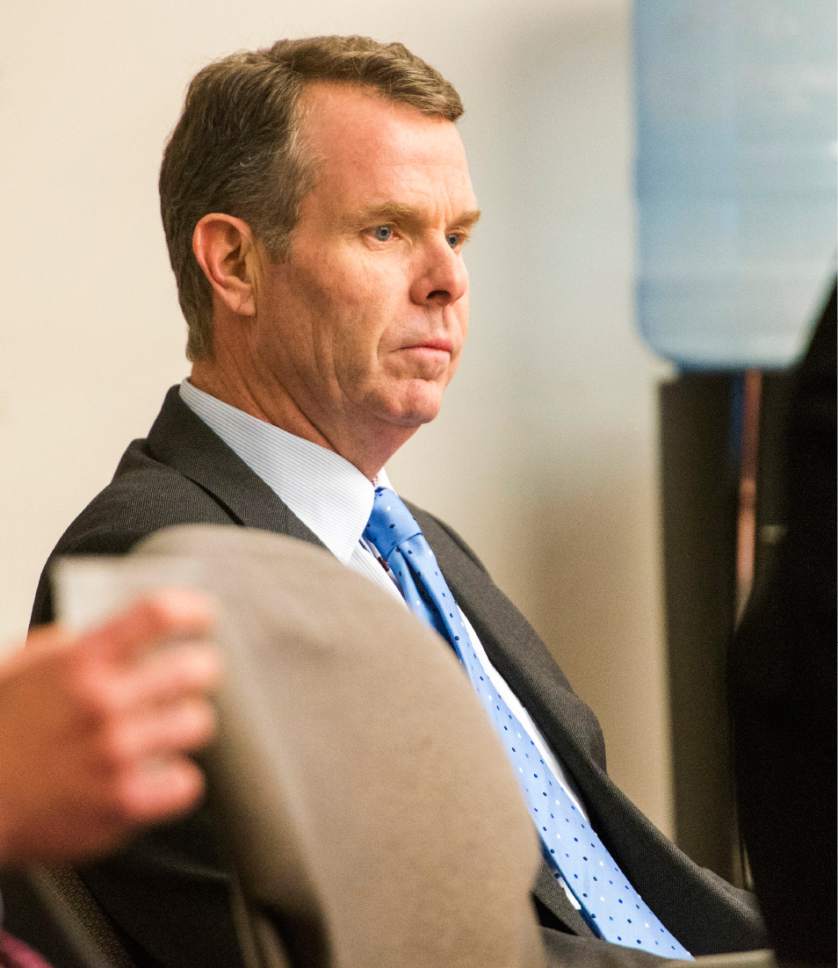This is an archived article that was published on sltrib.com in 2017, and information in the article may be outdated. It is provided only for personal research purposes and may not be reprinted.
Former Utah Attorney General Mark Shurtleff will not testify in the public corruption trial of his former chief civil deputy and successor, John Swallow.
At a hearing Friday in 3rd District Court, defense lawyer Scott C. Williams noted he no longer planned to call the former three-term attorney general, who had said publicly he was willing to testify.
"The evidence so far has not been strong enough to need any rebuttal from Mr. Shurtleff," Williams told reporters after the hearing.
Also off the list: Davis County Attorney Troy Rawlings, who prosecuted Shurtleff until the case was dismissed, and a handful of high-profile Utah politicians and lawyers whose names have come up in testimony.
By Friday evening, Utah House Speaker Greg Hughes was also off Williams' list.
The Draper Republican was implicated in the case when former businessman Marc Sessions Jenson testified that the lawmaker was with Shurtleff and Swallow at a luxury California resort in 2009 for a secret meeting that involved Utah Transit Authority officials and developers working on a project at a Draper train station.
Hughes has denied the allegation, and an FBI agent said Thursday investigators had not interviewed him because they believed he was not relevant to the Swallow case.
The decision to release Hughes from the Swallow witness list was based on conversation with Hughes and the defense's belief that Jenson's testimony was unreliable, Williams said.
"We feel the FBI has essentially accepted Mr. Hughes' public explanation, and therefore the FBI must believe Mr. Hughes rather than the claims of Marc Jenson," Williams said. "We do not wish to burden [the speaker's] final days at the Legislature with uncertainty about whether or not he will have to testify."
Williams said the defense plans to call "six to eight" witnesses when the trial resumes Tuesday. The list has been pared down, Williams explained, based on the way prosecution witnesses had testified — particularly under cross-examination — over the three weeks of the trial.
"We felt like we got our witnesses in through their witnesses," he said. "We left each day thinking the witnesses they put on ... supported our position."
Williams declined to comment on whether Swallow might take the stand to testify in his own defense.
Closing arguments in the case could be heard as early as Wednesday.
Shurtleff was in the courtroom Friday when Williams said he would not be called.
As a possible witness, Shurtleff had been barred from listening to or reading about court testimony, including on Twitter, one of the former politician's preferred means of communication.
Released from that prohibition Friday, Shurtleff — whose name has been repeatedly invoked during the trial — told reporters after the hearing that he has, unsurprisingly, felt like he had also been on trial.
"Everybody points at the empty chair, blame the person who's not here," he said, before joking, "I've heard there's a joke going around with prosecutors now — if you're having trouble with your case, blame Mark Shurtleff."
Williams agreed that Shurtleff has been a focal point of the state's case. "It seems to be the state's strategy to impugn others and attach some liability to Mr. Swallow," Williams said. "It's not fair, but it's also our opinion that it's not working."
Salt Lake County prosecutors rested their case Thursday and asked the judge to drop three of the 13 counts filed against Swallow.
Judge Elizabeth Hruby-Mills agreed, eliminating counts of receiving or soliciting a bribe, money laundering and evidence tampering.
But, on Friday, the judge denied a defense motion for a so-called "directed verdict" that sought to dismiss the 10 remaining counts.
The denials trickled out throughout the course of the day, beginning with a ruling on what may be the most significant count: racketeering, also known as engaging in a pattern of unlawful activity.
Prosecutors contend Swallow participated in a criminal enterprise along with Shurtleff and Shurtleff's so-called "fixer," the late Tim Lawson. Shurtleff allegedly sat at the top of a three-pronged conspiracy, with Lawson as the muscle and Swallow as the moneyman.
In her directed-verdict decision Friday, Hruby-Mills concluded — as she had in previous rulings — that a "sufficient cooperative arrangement and/or relationship" existed between the three men "to support a joint enterprise to advance the financial and/or political aspirations of its members."
The judge's decisions on seven other counts, including obstruction of justice, evidence tampering, misuse of public funds, and accepting a prohibited gift, followed throughout the day.
Rulings on two other counts were pending Friday evening.
In each instance, the judge said that, based on the evidence, including exhibits and witness testimony, "a jury acting reasonably" could convict Swallow on the charges, although she did narrow the scope of at least one count.
@jenniferdobner


